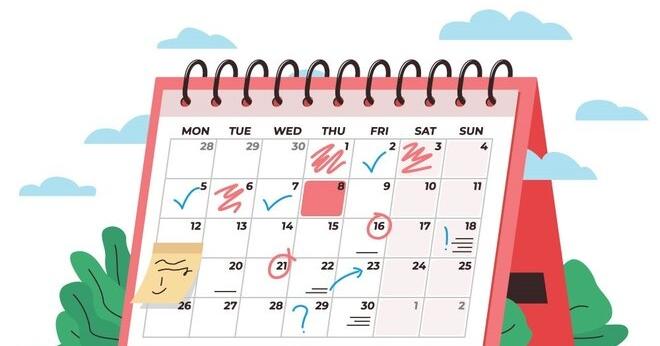In today’s diverse and inclusive world, fostering an environment that celebrates diversity, equity, and inclusion (DEI) is not just a responsibility; it’s a necessity. Many organizations have realized the importance of DEI initiatives and are looking for effective ways to embed them into their corporate culture. One powerful tool for achieving this is creating a year-round DEI calendar. In this article, we will explore the best practices for developing a comprehensive DEI calendar that can drive positive change throughout the year.
Understanding the Significance of a Year-Round DEI Calendar
A year-round DEI calendar ensures that DEI efforts are not confined to a specific month or event but are integrated seamlessly into the organization’s daily operations.
Diversity, equity, and inclusion are not just buzzwords; they are essential components of a thriving and innovative workplace. A year-round DEI calendar is a strategic tool that allows organizations to prioritize and promote these principles consistently.
Setting Clear Objectives
Before creating your DEI calendar, establish clear objectives. What do you want to achieve through your DEI initiatives? Define measurable goals.
Identifying Key DEI Dates
Identify important dates related to DEI, such as cultural heritage months and historical milestones, to plan your calendar around them.
Incorporating Training and Workshops
Include mandatory DEI training and workshops throughout the year to educate employees and raise awareness.
Employee Resource Groups (ERGs) and Affinity Groups
Encourage the formation of ERGs and affinity groups to provide safe spaces for employees to connect and share experiences.
Promoting Inclusivity in Recruitment
Embed DEI principles in your recruitment process to attract diverse talent and reduce bias.
Cultivating an Inclusive Workplace Culture
Create an inclusive environment where every employee feels valued and heard, regardless of their background.
Measuring and Tracking Progress
Regularly assess your DEI initiatives and use data to measure progress and identify areas for improvement.
Engaging Leadership and Management
Ensure that leadership is actively involved in DEI efforts and sets an example for the rest of the organization.
Collaborating with External Partners
Partner with organizations and experts in DEI to gain insights and stay updated on best practices.
Employee Surveys and Feedback Loops
Gather feedback from employees to make informed adjustments to your DEI initiatives.
DEI Awards and Recognitions
Celebrate DEI’s achievements and recognize employees who contribute to a more inclusive workplace.
Handling Controversial Topics with Sensitivity
Address controversial topics with care, facilitating open and respectful discussions.
Conclusion
A year-round DEI calendar is a dynamic tool that can transform your organization by fostering a culture of diversity, equity, and inclusion. By following these best practices, you can create a DEI calendar that drives positive change and ultimately benefits your employees and your business.
Frequently Asked Questions (FAQs)
Q1: What is the purpose of a year-round DEI calendar?
A1: A year-round DEI calendar ensures that diversity, equity, and inclusion efforts are consistently integrated into an organization’s activities throughout the year.
Q2: How can I measure the success of my DEI initiatives?
A2: Success can be measured through key performance indicators (KPIs), employee feedback, and changes in workplace culture.
Q3: Are DEI initiatives only for large organizations?
A3: No, organizations of all sizes can benefit from DEI initiatives, as they promote a more inclusive and innovative work environment.
Q4: How can I handle resistance to DEI initiatives within my organization?
A4: Address resistance with education, open dialogue, and showcasing the benefits of diversity and inclusion.
Q5: What resources are available for organizations looking to enhance their DEI efforts?
A5: There are many resources available, including DEI consultants, online courses, and DEI-focused organizations that offer guidance and support.






